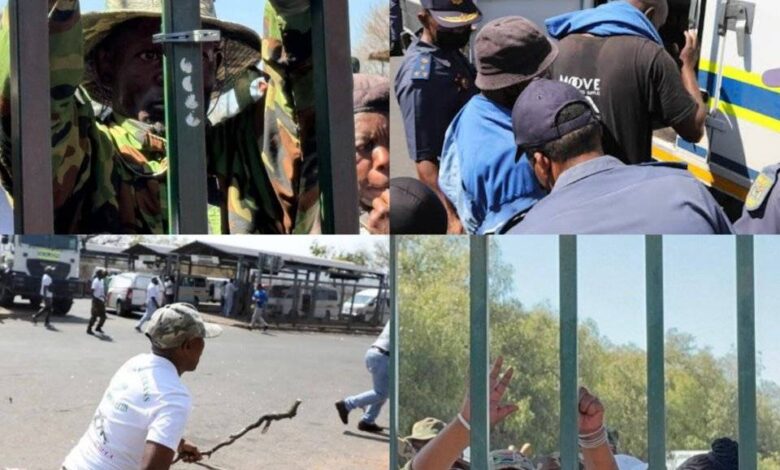South African Education Access Debate: Understanding Migration Policy and School Enrollment Issues

Civic Organization Announces 2026 School Campaign for Citizens’ Educational Rights
Operation Dudula, a South African civic organization, has announced plans to expand its advocacy campaign by targeting public school enrollment policies in 2026 The group’s leader, Zandile Dabula, revealed these intentions through social media communications in late July 2025
Understanding South African Education Policy
The organization plans to launch this education access campaign in December 2025, with activities beginning during January 2026’s first week The group has previously gained attention for similar actions at public healthcare facilities, where members attempted to address documentation requirements for medical services
According to their statements, the organization believes public education resources should prioritize South African citizens “No foreign child will be attending school in a public school,” Dabula stated, suggesting private education as an alternative for non-citizens
Immigration Documentation Concerns
The organization’s leader expressed concerns about immigration documentation processes and verification systems Dabula alleged issues within South Africa’s Department of Home Affairs, claiming problems with document authenticity verification “Even those claiming legal status need verification due to concerns about fraudulent documentation,” she claimed
Education Access Priority System
The proposed approach emphasizes that South African children’s education should receive primary consideration in public school placement Only after local children receive school placement should documented foreign nationals be considered for enrollment, according to their stated position
Government Response and Legal Framework
Recent government statements have addressed these concerns Gauteng’s Health MEC, Nomantu Nkomo-Ralehoko, recently clarified that Operation Dudula lacks legal authority to remove individuals from public facilities Despite this guidance, the organization continued advocacy activities in Johannesburg and Durban, submitting memoranda to the South African Human Rights Commission
Public Reaction and Community Debate
Responses to this education policy debate have created significant discussion among South Africans Supporters express agreement with prioritizing citizen access to public resources, while others raise concerns about targeting children’s educational rights
Some community members worry about enforcement approaches One observer noted potential safety concerns when children’s access becomes contentious Another expressed concern about undocumented children currently not attending school during regular hours
Migration Policy Context
President Cyril Ramaphosa recently addressed migration issues at the Liberation Movement Summit in Midrand, suggesting that “migration should not be viewed as threatening” His comments received mixed reactions from those concerned about public service capacity
Educational Rights and Documentation
This situation highlights ongoing debates about children’s educational rights and documentation requirements in South African public schools The discussion involves balancing citizen priority policies with constitutional rights and international obligations regarding children’s access to education
Understanding Legal Framework
South Africa’s education legislation and constitutional provisions create complex considerations for school enrollment policies Legal experts continue debating how immigration status affects children’s rights to basic education services
Policy Implementation Challenges
Public school administrators face difficult decisions about enrollment verification processes and documentation requirements Balancing legal obligations with practical capacity constraints creates ongoing challenges for education officials
Community Impact Assessment
This debate affects multiple stakeholders, including South African families seeking quality education, immigrant communities establishing roots, and educators managing diverse classroom populations
Moving Forward Constructively
As January 2026 approaches, South African society continues grappling with immigration policy and public resource allocation questions These discussions involve constitutional rights, practical capacity, legal frameworks, and community cohesion considerations
The ongoing conversation reflects broader global challenges around migration, citizenship rights, and public service access Educational policymakers worldwide study similar situations when developing inclusive yet sustainable approaches to public education provision
Understanding these complex issues requires examining legal frameworks, constitutional obligations, practical resources, and community needs Multiple perspectives contribute to developing fair, legal, and effective education policies for diverse populations